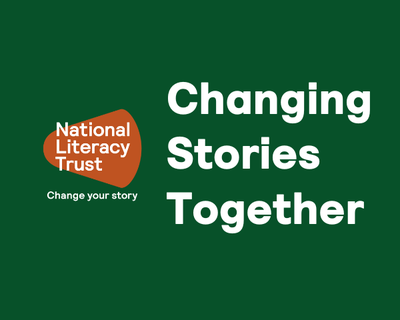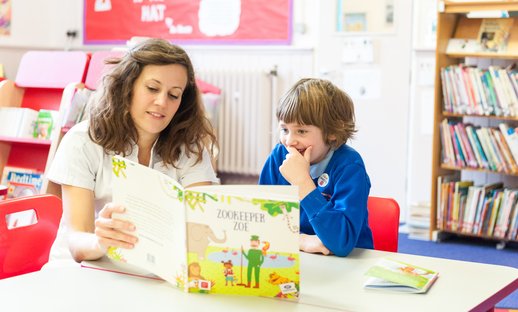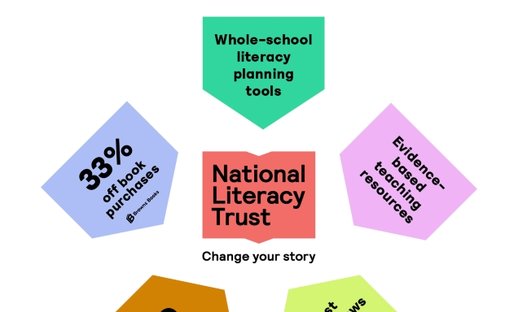Our bold and ambitious three-year strategy
We know that having low levels of literacy risks social and economic exclusion. That is why, for the last 30 years, we have been empowering people with the literacy skills they need to succeed in life.
Our mission to empower people from the most disadvantaged communities with the essential literacy skills required to change their own story is still as critical and powerful as ever. However, as the literacy landscape changes, we need a new, bold and ambitious strategy that will shape our work and help us deliver more impact over the next three years.
The National Literacy Trust strategy explored
Watch the following short video and hear from our Chief Executive, Jonathan Douglas as he discusses with National Literacy Trust chair, Joanna Prior, how our strategy will boldly empower and equip people in the most disadvantaged communities over the next three years.
Download our 2025-28 strategy
Where we have tried to summarise our new National Literacy Trust three-year strategy for you here on our website, we realise there is still plenty to unpack. Discover in greater depth how we will empower more people with the literacy skills they need to unlock a different story by reading our strategy in full.

How we make change happen
We know that the literacy challenge is complicated: literacy is intergenerational; it is closely related to inequality. Particular communities and particular characteristics make it more likely that you will have low levels of literacy. Our approach therefore needs to be sophisticated and evidence-based. From 2025-2028, we will work in four ways to empower people with the literacy skills to succeed in life.
-
By directly supporting literacy skills and building confidence.
-
By helping professionals increase the quality of literacy provision.
-
By standing side by side with communities to tackle literacy inequality.
-
By influencing leadership and policy to create lasting change.
Our priorities for 2025-28
To develop our priorities, we have identified the three changes, or 'Breakthroughs', which would have the biggest impact on our vision for a more equal society, driven by literacy. Over the next three years we will commit to focusing our energy and resources on the following three Breakthroughs:
Literacy to grow
Breakthrough one: Every child starts school with language and communication skills ready to grow and learn at school.

Literacy to learn
Breakthrough two: Every young person, wherever they grow up, leaves school with literacy skills for life.

Literacy to thrive
Breakthrough three: Everyone leaving the criminal justice system has improved literacy skills to help them thrive.

We're in this together
Partnerships have been, and continue to be, critical to the way we make change happen. Discover how you can practically partner with us so that together, we can continue to change people’s life stories in the most disadvantaged communities.
-
Low literacy undermines our economic competitiveness and sustainability and creates obstacles to a fairer society. Businesses have the resources and reach to make a real impact.View details about Corporate support
-
The business community is joining the national literacy campaign to help close the literacy gap and boost social mobility.View details about Vision for Literacy Business Pledge
-
Become a National Literacy Trust member school. Discover inspiring teaching resources, school improvement tools and CPD to support literacy throughout your school or setting.View details about Join us



